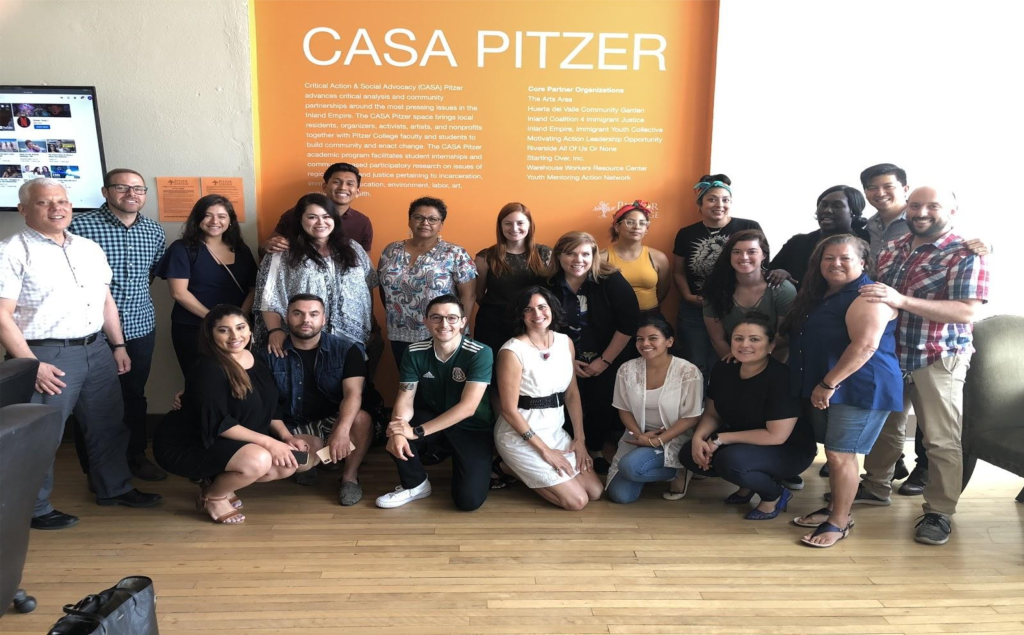I have always held administrative positions alongside my community work, teaching and research/scholarship. Prior to working in academia, I was director of a variety of departments within human relations and civil rights organizations as well as community youth programs. Since 2009, I have been the Assistant Vice President of Community Engagement and director of the Community Engagement Center at Pitzer College, though am currently on leave from directing the CEC during my appointment as director of the Office for Consortial Academic Collaboration. In addition that post, I also direct CASA (Critical Advocacy & Social Action community center and action research program), in addition to teaching.

CASA Pitzer | Critical Action & Social Advocacy
CASA (Critical Action and Social Advocacy)
Tessa was appointed to the position of CASA (Critical Action and Social Advocacy) in July 2018.
CASA Pitzer MISSION
CASA Pitzer advances critical analysis and community partnerships around the most pressing issues in Southern California’s Inland Valley. The CASA Pitzer community center (a large community space in downtown Ontario) brings local residents, organizers, activists, artists, and nonprofits together with Pitzer College faculty and students to build community and enact change. The CASA Pitzer academic program (a two-course community engagement and research program) facilitates student internships and community-based participatory research on issues of regional equity and justice pertaining to incarceration, immigration, education, environment, labor, art, culture, and health.
CASA Pitzer GOALS
- Work collaboratively with community partners on research, service, organizing, and action projects that confront injustice and work toward justice, equity, rights, wellbeing, and community building.
- Ensure work is responsive and accountable to the community, makes a positive impact, achieves long- and short-term goals, and generates meaningful community-building for all involved.
- Provide critical pedagogy-based teaching about self, other, social problems, social movements, and effective methods for social impact.
- Support, mentor, and critically teach our students, while respecting and learning from their knowledge and experiences.
- Create a space that is inclusive, welcoming, and supportive for community building, justice work, participatory action research, and personal and organizational development.
Home
Tessa was appointed to the position of the director of the Office of Consortial Academic Collaboration (OCAC) in July 2018.
Mission
The Office of Consortial Academic Collaboration works to develop and maintain effective, efficient, sustainable, and enduring cross-campus academic collaborations among the Claremont Colleges. In order to advance the core academic missions of the colleges, two principles guide our work: (1) Do together that which either cannot be achieved alone or would be more stunning if done together; and (2) Do together that which does not differentiate among our institution.
Goals
(1) To support the development of cross-campus programs and initiatives that benefit faculty, students, and other College stakeholders;
(2) To cultivate cross-campus curricular coherence; and
(3) To foster cross-campus research collaboration.

